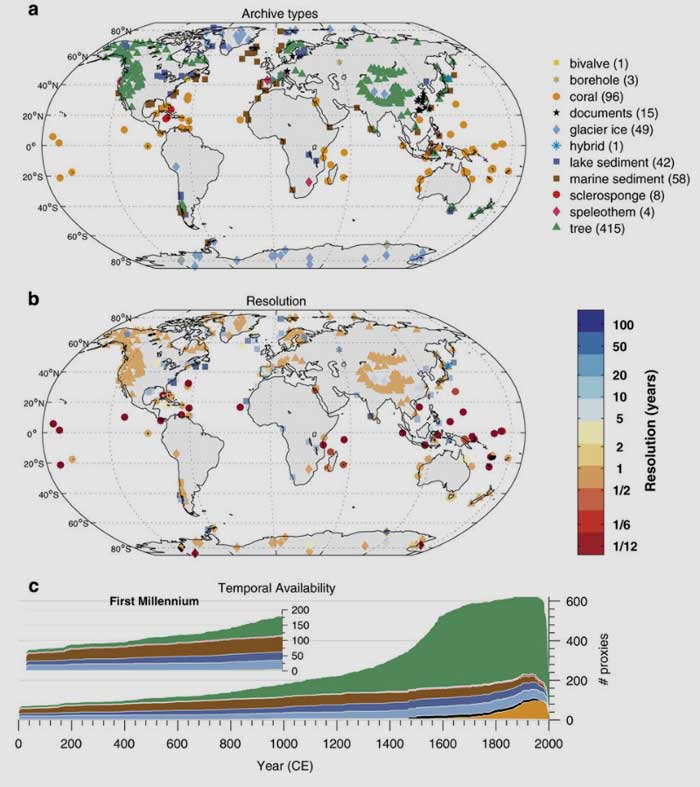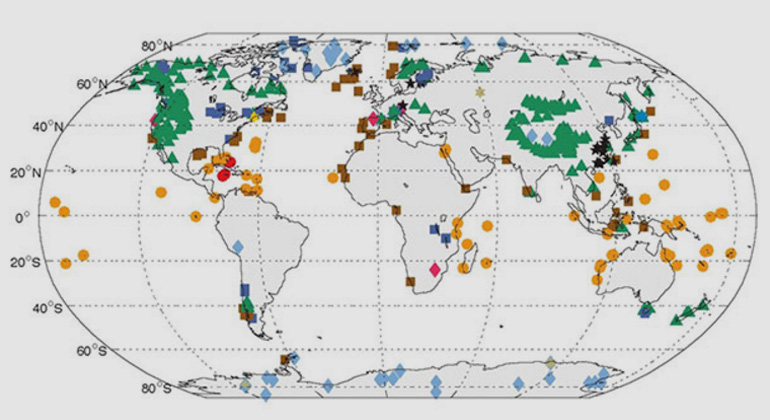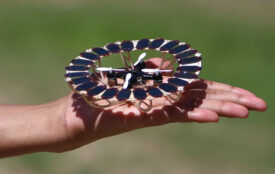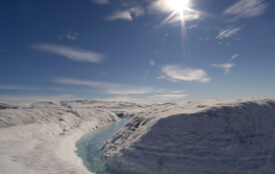Most comprehensive database on past global changes is online
Climate scientists will now be able to more accurately study the pattern and causes of global surface temperature changes than was previously possible, thanks to a large international team of scientists contributing to PAGES (Past Global Changes), one of the University of Bern’s affiliated climate organizations.
Our knowledge of global temperatures before routine weather measurements relies on so-called “proxy” data – biological and geological sources that provide indirect information on past temperatures. Tree rings, for example, tend to grow thicker in warmer years, allowing indirect estimates of temperature change during the life of the tree. The PAGES2k database includes proxy data from a number of distinct sources including tree rings, corals, glacier ice, and marine and lake sediments as well as historic documents. This vital tool for climate reconstructions and climate modeling has now been published online in the Nature journal Scientific Data. It represents the most transparent, complete and fully described release of the PAGES2k dataset to date, providing an important resource for climate researchers interested in how the climate has changed from 1 AD to the present.
Past Global Changes (PAGES) is an international climate change research organization with its head office at the University of Bern. The PAGES2k database is the product of a community-wide effort of climate experts, coordinated by PAGES. The database gathers 692 records from 648 locations, with data sources covering all continents and oceans. Data were selected and vetted in a collaborative manner by members of the PAGES2k consortium, according to a consistent and transparent set of criteria. They are releasing the final database as ‘open data’, allowing anyone to download and use the data, which is provided in a standardized format with supporting code, ensuring the data is accessible to specialists and citizen-scientists alike.
An initiative from Bern
The PAGES2k project was initiated by Bern researchers. Six climate experts from Bern were involved in collecting data, especially from the southern hemisphere. „Since we have a lot of projects in South America, Australia and in Southern Africa, we had the very complex task to consolidate and edit existing data“, says Rapahel Neukom, one of the project’s coordinators and co-author. „Our contacts to researchers in those regions are very valuable“, he adds. It needs a lot of trust and longtime partnerships in order to gather the best datasets for such a global project, especially because there are much less data available in the South. „It was also an important contribution from our part to bring in the South perspective, in order to get a truly globally consistent result“, says Neukom. The University of Bern was one of the few institutions significantly involved in every part of the project: collecting data, consolidating and editing data, as well in the synthesis and coordination of the work.
Martin Grosjean, Director of the Oeschger Centre for Climate Change Research at the University of Bern, said Bern should be proud of the database and its contribution to paleoscience: “Thanks to PAGES and the offices of the UN Climate Council IPCC which were also located here, the University of Bern has become an internationally renowned climate hub“.
An initial summary of the global temperature history using the full PAGES2k database shows a long-term cooling trend until the 19th century, which is then followed by a sharp warming trend. This is consistent with a large body of current climate research. They show that these trends concur with the regional temperature patterns reconstructed from a previous, more limited, version of the PAGES2k database (published in 2013).
About PAGES
Past Global Changes (PAGES) was established in 1991 to facilitate international research into understanding climatic and environmental dynamics by studying the past, in order to help predict the future. PAGES is funded jointly by the US National Science Foundation and Swiss Academy of Sciences, and supported in-kind by the University of Bern.
The PAGES 2k Network was initiated in 2006, with the goal of compiling and analyzing a global array of regional climate reconstructions for the last 2000 years. The project is open to all interested participants.









